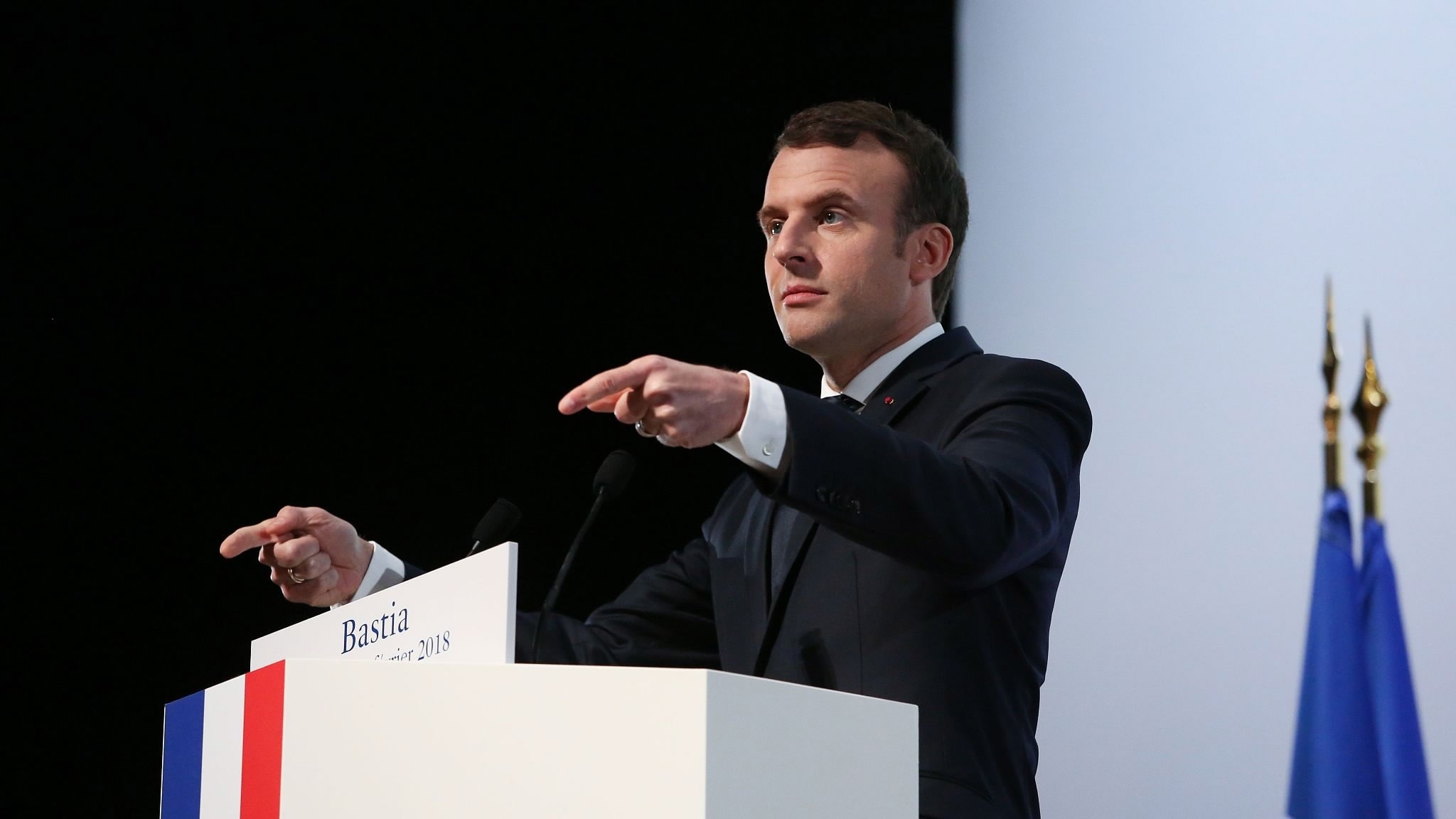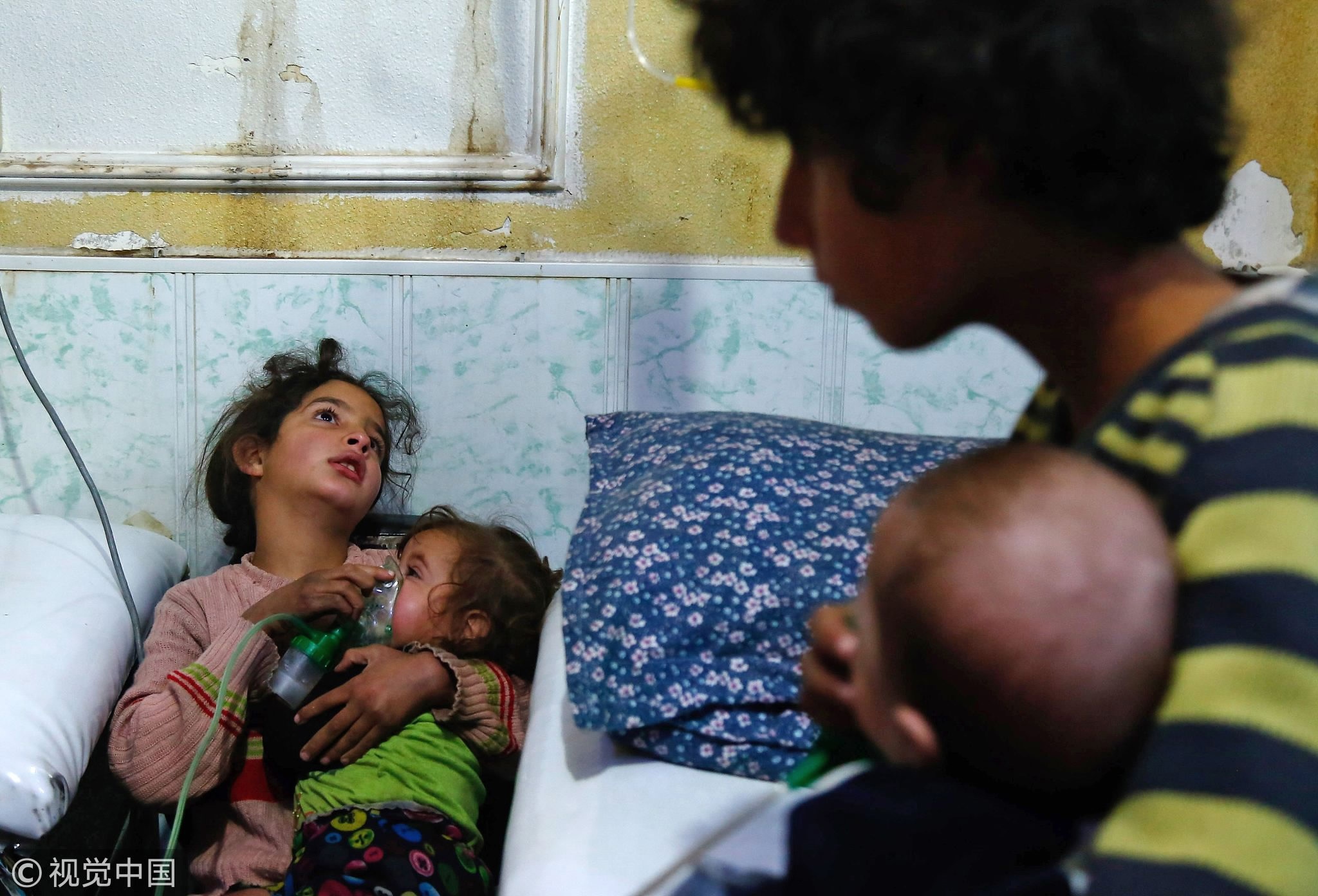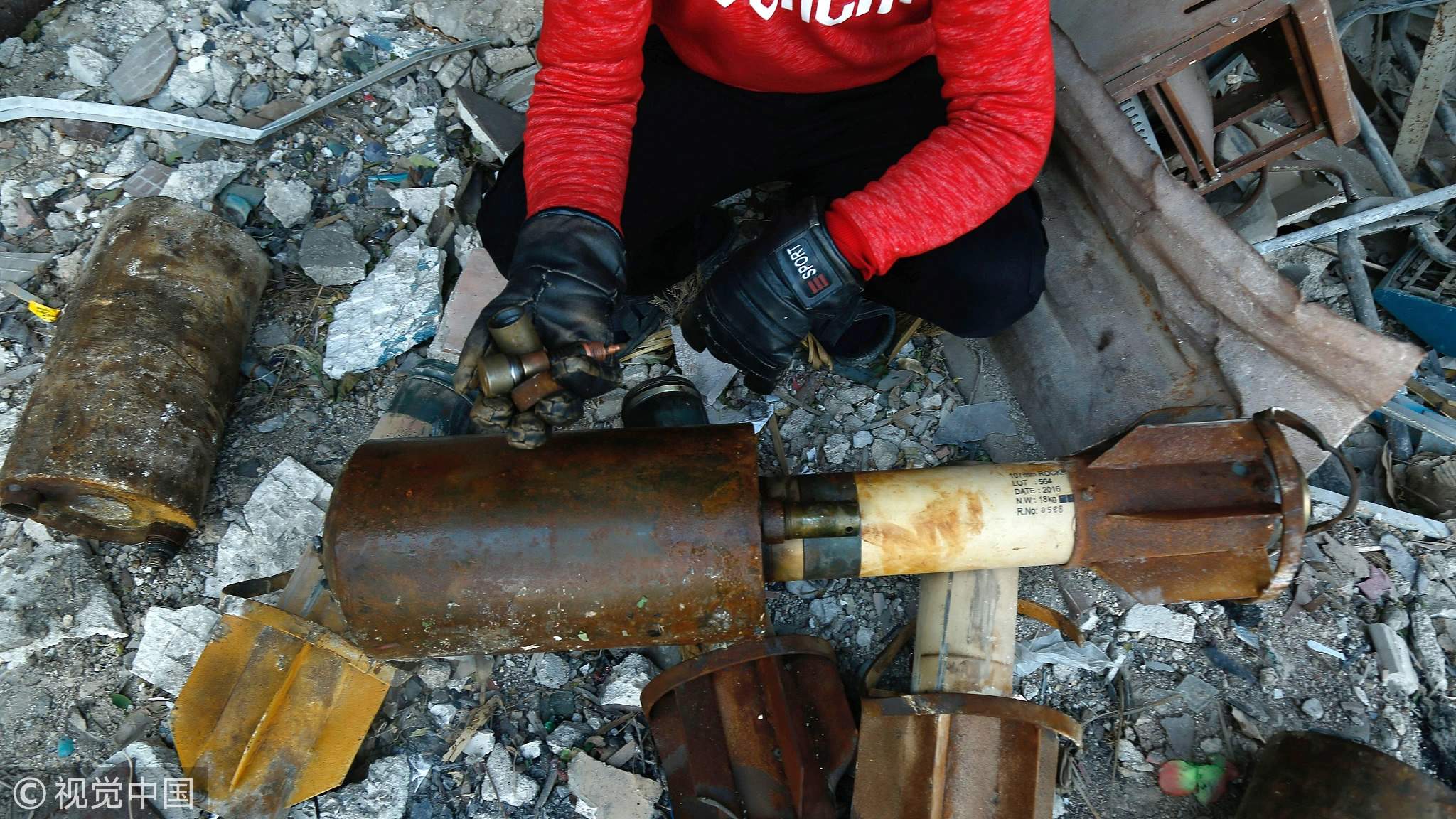
World
10:23, 14-Feb-2018
Macron says France 'will strike' if chemical attacks in Syria proven
By Sim Sim Wissgott

France is prepared to retaliate against Syria if there is evidence that Damascus is using chemical weapons – banned under international law – against its civilians, French President Emmanuel Macron told reporters on Tuesday.
"We will strike the place where these launches are made or where they are organized," he said, speaking in Paris.
So far, French armed forces have not found evidence that chemical weapons have been used against Syria’s civilian population but “as soon as such proof is established, I will do what I said," Macron warned.
"On chemical weapons, I set a red line and I reaffirm that red line," he added.
This was a reference to comments by Macron last May when he said the use of chemical weapons in Syria would constitute a “red line” that could not be crossed without repercussions.

A Syrian girl holds an oxygen mask over the face of an infant at a make-shift hospital following a reported gas attack on the rebel-held besieged town of Douma in the eastern Ghouta region on the outskirts of the capital Damascus on January 22, 2018. /VCG Photo
A Syrian girl holds an oxygen mask over the face of an infant at a make-shift hospital following a reported gas attack on the rebel-held besieged town of Douma in the eastern Ghouta region on the outskirts of the capital Damascus on January 22, 2018. /VCG Photo
Macron also warned the regime of Bashar al-Assad on Monday that "it will be answerable to international justice."
Damascus has repeatedly been accused of using chemical weapons against civilians, including in a deadly attack in Syria’s northwestern Idlib province last April, in which over 80 people were killed, according to rights groups.
The UN is also investigating reports of chlorine gas attacks in recent weeks in Idlib and eastern Ghouta.
Syria’s government has however denied carrying out any such attacks.
Under the 1997 Chemical Weapons Convention, of which Syria is a signatory, countries are prohibited from developing or using chemical weapons, and must destroy their stockpiles.
Syria destroyed its official stockpile but undeclared chemicals still exist, according to the Arms Control Association.

A Syrian man shows remnants of rockets reportedly fired by regime forces on the rebel-held besieged town of Douma in the eastern Ghouta region on the outskirts of the capital Damascus on January 22, 2018. /VCG Photo
A Syrian man shows remnants of rockets reportedly fired by regime forces on the rebel-held besieged town of Douma in the eastern Ghouta region on the outskirts of the capital Damascus on January 22, 2018. /VCG Photo
Meanwhile, a UN inquiry into the use of chemical weapons in Syria was halted last autumn following a veto by Russia in the UN Security Council. Russia, along with Iran, backs the Assad regime.
Macron’s comments on Monday were met with some impatience on the part of the Syria Civil Defense, also known as the "White Helmets."
“Use another word because all the red lines have been crossed and the (Syrians) are disappointed with these words," vice president Abdulrahman Almawwas, in Paris to meet with French officials, told reporters.
"It's time to take real action and not just talk about red lines."
Hundreds of thousands of people have been killed in seven years of conflict in Syria, while half of the country’s 23-million-strong pre-war population has been displaced.
(With input from agencies)
8226km

SITEMAP
Copyright © 2018 CGTN. Beijing ICP prepared NO.16065310-3
Copyright © 2018 CGTN. Beijing ICP prepared NO.16065310-3